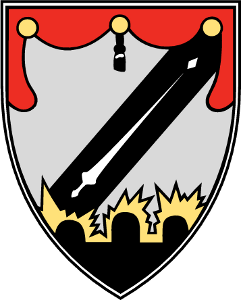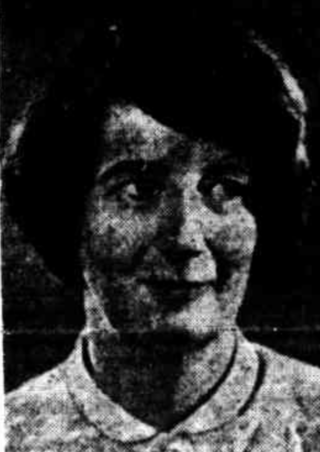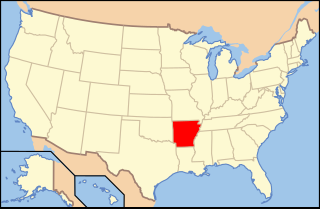
Sir Derek Alton Walcott was a Saint Lucian poet and playwright. He received the 1992 Nobel Prize in Literature. His works include the Homeric epic poem Omeros (1990), which many critics view "as Walcott's major achievement." In addition to winning the Nobel Prize, Walcott received many literary awards over the course of his career, including an Obie Award in 1971 for his play Dream on Monkey Mountain, a MacArthur Foundation "genius" award, a Royal Society of Literature Award, the Queen's Medal for Poetry, the inaugural OCM Bocas Prize for Caribbean Literature, the 2010 T. S. Eliot Prize for his book of poetry White Egrets and the Griffin Trust For Excellence in Poetry Lifetime Recognition Award in 2015.

New England cuisine is an American cuisine which originated in the New England region of the United States, and traces its roots to traditional English cuisine and Native American cuisine of the Abenaki, Narragansett, Niantic, Wabanaki, Wampanoag, and other native peoples. It also includes influences from Irish, French, Italian, and Portuguese cuisine, among others. It is characterized by extensive use of potatoes, beans, dairy products and seafood, resulting from its historical reliance on its seaports and fishing industry. Corn, the major crop historically grown by Native American tribes in New England, continues to be grown in all New England states, primarily as sweet corn although flint corn is grown as well. It is traditionally used in hasty puddings, cornbreads and corn chowders.

New Haven is a city in New Haven County, Connecticut, United States. It is located on New Haven Harbor on the northern shore of Long Island Sound and is part of the New York City metropolitan area. With a population of 135,081 as determined by the 2020 U.S. census, New Haven is the third largest city in Connecticut after Bridgeport and Stamford and the principal municipality of Greater New Haven, which had a total 2020 population of 864,835. Prior to 1960, it was the county seat of New Haven County until the county governments were abolished that year.

A fast-food restaurant, also known as a quick-service restaurant (QSR) within the industry, is a specific type of restaurant that serves fast-food cuisine and has minimal table service. The food served in fast-food restaurants is typically part of a "meat-sweet diet", offered from a limited menu, cooked in bulk in advance and kept hot, finished and packaged to order, and usually available for take away, though seating may be provided. Fast-food restaurants are typically part of a restaurant chain or franchise operation that provides standardized ingredients and/or partially prepared foods and supplies to each restaurant through controlled supply channels. The term "fast food" was recognized in a dictionary by Merriam–Webster in 1951.

Brundibár is a children's opera by Jewish Czech composer Hans Krása with a libretto by Adolf Hoffmeister, made most famous by performances by the children of Theresienstadt concentration camp (Terezín) in occupied Czechoslovakia. The name comes from a Czech colloquialism for a bumblebee.

The David Geffen School of Drama at Yale University is a graduate professional school of Yale University, located in New Haven, Connecticut. Founded in 1924 as the Department of Drama in the School of Fine Arts, the school provides training in every discipline of the theatre – acting, design, directing, dramaturgy and dramatic criticism, playwriting, stage management, technical design and production, and theatre management. It was known as the Yale School of Drama until its endowment by David Geffen in 2021.

Jeffrey Warren Daniels is an American actor, musician and playwright, also known for his work on stage and screen playing diverse characters switching between comedy and drama. He is the recipient of several accolades, including two Primetime Emmy Awards, in addition to nominations for three Tony Awards, five Screen Actors Guild Awards, and five Golden Globe Awards.
Couva is an urban town in west-central Trinidad, south of Port of Spain and Chaguanas and north of San Fernando and Point Fortin. It is the capital and main urban centre of Couva–Tabaquite–Talparo, and the Greater Couva area includes the Point Lisas Industrial Estate and the Port of Point Lisas. It is one of the fastest-growing towns in the country. Couva's southern boundary is at the village of California & Point Lisas, and to the north Couva stretches to McBean. To the east of Couva is Preysal. To the west of Couva is the road to Waterloo and Carli Bay, which are located on the Gulf of Paria. Couva was part of the Caroni County. Couva is considered a major power base for the United National Congress (UNC), whose headquarters was previously located here.

Trinidad and Tobago, officially the Republic of Trinidad and Tobago, is the southernmost island country in the Caribbean. Consisting of the main islands Trinidad and Tobago, and numerous much smaller islands, it is situated 11 kilometres off the coast of northeastern Venezuela and 130 kilometres south of Grenada. It shares maritime boundaries with Barbados to the northeast, Grenada to the northwest and Venezuela to the south and west. Trinidad and Tobago is generally considered to be part of the West Indies. The island country's capital is Port of Spain, while its largest and most populous city is San Fernando.
Angharad Mary Rees, The Hon. Mrs David McAlpine, CBE was a British actress, best known for her British television roles during the 1970s and in particular her leading role as Demelza in the 1970s BBC TV costume drama Poldark.
The Clarence Derwent Awards are theatre awards given annually by the Actors' Equity Association on Broadway in the United States and by Equity, the performers' union, in the West End in the United Kingdom.

Poultrygeist: Night of the Chicken Dead is a 2006 black comedy musical horror film directed by Lloyd Kaufman and co-directed by Gabriel Friedman from a screenplay by Friedman and Daniel Bova. The film centers around the takeover of a New Jersey fried chicken fast food restaurant by possessed zombie chickens after it is built on top of a sacred Native American burial ground. The film was distributed and released on December 29, 2006, and in 2008 on DVD by Troma Entertainment.

Rupert D'Oyly Carte was an English hotelier, theatre owner and impresario, best known as proprietor of the D'Oyly Carte Opera Company and Savoy Hotel from 1913 to 1948.

The city of Baltimore, Maryland, has been a predominantly working-class town through much of its history with several surrounding affluent suburbs and, being found in a Mid-Atlantic state but south of the Mason-Dixon line, can lay claim to a blend of Northern and Southern American traditions.

Mona Brand was a twentieth-century Australian playwright, poet and freelance writer. She also wrote under the name Alexis Fox.

The culture of Arkansas is a subculture of the Southern United States that has come from blending heavy amounts of various European settlers culture with the culture of African slaves and Native Americans. Southern culture remains prominent in the rural Arkansas delta and south Arkansas. The Ozark Mountains and the Ouachita Mountains retain their historical mount. Arkansans share a history with the other southern states that includes the institution of slavery, the American Civil War, Reconstruction, Jim Crow laws and segregation, the Great Depression, and the Civil Rights Movement.

Winston Duke is a Tobagonian actor. He made his feature film debut in the role of M'Baku in Black Panther (2018) and is best known for portraying the character in four films in the Marvel Cinematic Universe.
Marina Ama Omowale Maxwell, also known as Marina Maxwell and Marina Maxwell Omowale, is a Trinidadian playwright, performer, poet and novelist. She was associated with the Caribbean Artists Movement in London in the late 1960s, working with Edward Kamau Brathwaite, while back in the Caribbean she was responsible for developing the experimental Yard Theatre, which was "an attempt to place West Indian theatre in the life of the people [...] to find it in the yards where people live and are." The concept "yard theatre" was considered revolutionary by Brathwaite because it not only rejected the traditions of colonial Euro-American theatre but provided a viable creative local alternative.













